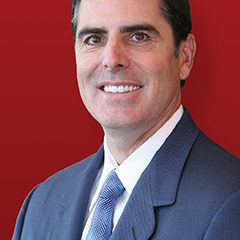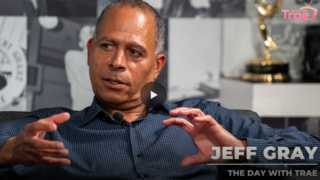Ensure That Your Media Dollars Are Working Overtime


Providing key information about your database to your agency
If you are a Marketing Director whose relationship with your player database is “till death do us part,” then you are not alone. But what if you are not getting enough analysis, or the actionable analysis you need, to make the most of your media dollars and social effort? In the following few paragraphs, I’m going to give you some good reasons to loosen your grip on the database (a little), plus some important tips for safeguarding this vital information.
Many a casino’s bottom line lives and dies by direct mail offers to its player database. Monthly free play and VIP direct marketing are everything. You adjust your tiers and offer structure until you are blue in the fingertips, to increase revenue and trips. The only outside entity that you would even think about sharing your “list” with is the company that sends out your mail. Is that about right?
Here is why you may want to share some of your database information with your advertising agency or media buyer. Think about your media budget and marketing plan. It’s quite possible that your media dollars are eclipsed only by your casino’s labor expenses, and perhaps your free play expense. Your annual investment in mass communication is significant because a) media requires a higher out-of-pocket cost, b) advertising is key to reinforcing your brand and position, and c) advertising helps drives business for promotions, concerts and events. And let’s face it, maintaining your share-of-voice in a competitive market is essential.
To ensure that your media dollars are working overtime to reach the right audience through the most effective channels based on the core audience’s media habits, your media planner needs key information from your database. Since my perspective is coming from the “agency” side, please allow me to make a case for loosening your grip on your database stats:
- Your media buyer or the agency buying your media is entrusted with a significant chunk of your budget, and they should have all the tools available to understand your players.
- On a quarterly, if not monthly basis, your buyer should deeply analyze your audience segments to evaluate and recommend the most effective use of your media dollars to reach your core market.
- Your buyer doesn’t need to know “who.” Don’t share names, addresses, birthdates, phone numbers, etc.
- There’s little risk in sharing basic numbers or percentages of players in your database by zip code with Age, Total Trips, Average Trips, Total Theo, ADT or calculated worth, ADW, Offer Level or Tier and Reinvestment rate.
- With these nuts and bolts you provide, your agency or media planner can sink deeply into research with local market data, audience profiles, media habits, buying behaviors, lifestyle preferences, hobbies, and purchasing patterns. A good share-of-market indicator against your competitors is also revealed.
- Player data will help identify markets that are performing well, and uncover underperforming markets. Media dollars can be easily shifted to heavy up where needed, and convert the lower-performing markets into profitable areas.
- Ever have trouble justifying your overall marketing spend to your board or tribal council? Using actual player data and revenue can prove that marketing efforts are successful and generating a strong return on investment.
- Truly unique insight gleaned from your database and research is a powerful competitive advantage.
A media buyer who is an expert on your players can help shape the way that the audience feels about their interaction with your casino, because we know that emotions drive consumer decision-making. Understanding your players’ – your core market’s – beliefs and motivations provides valuable leverage for affecting their behavior. We must speak to them with a message that touches not only their minds, but also their hearts.
Hopefully I have made a convincing case and dispelled some of your concerns about providing database information to your trusted media planner or agency. That being said, it’s surprising how many casinos we have seen simply email a direct mail list over to their mail house, without a care in the world about who sees it, where it’s stored, or what happens to it after the mail goes out.
Here are a few of our “best practices” for database security:
- Do use an SFTP (Secure File Transfer Protocol) to send database files outside of your building. Don’t ever email your lists. They can easily or accidentally be forwarded to anyone.
- Do require your data recipient to keep your valuables off their servers whenever possible. Data stored on an external hard drive that is locked up and taken off property when the mail house is closed is much safer against hacking or break-ins. Make sure that the data is physically returned to you or adequately destroyed upon project completion. Cyber security is of paramount importance today. What would happen if your competitor gets his hands on your players? One disgruntled ex-employee could mean the difference between sink or swim.
- Do stop by your mail house unannounced for a quick visit. Ask to be shown your most recent data files, and see if they are on a server or an external drive. Are they laying on someone’s unattended desk, or under lock and key? Are there piles of your mail pieces stacked on tables in full view of anyone touring the facility? Are there new faces there – a lot of employee turnover? What’s their employee screening process like? The security of their physical plant? You can see and learn a lot with the occasional surprise visit. Don’t hesitate to ask questions.
Your player database is the lifeblood of your revenue stream, and the difference between success and failure in most cases. See what information you can confidently share with your marketing partner agency, and understand that, even though you know the data inside and out, a fresh set of eyes and a different perspective can be invaluable. Review your data security procedures and see if there’s a chance that you’ve become too comfortable in your processes and are vulnerable to cyber theft.






